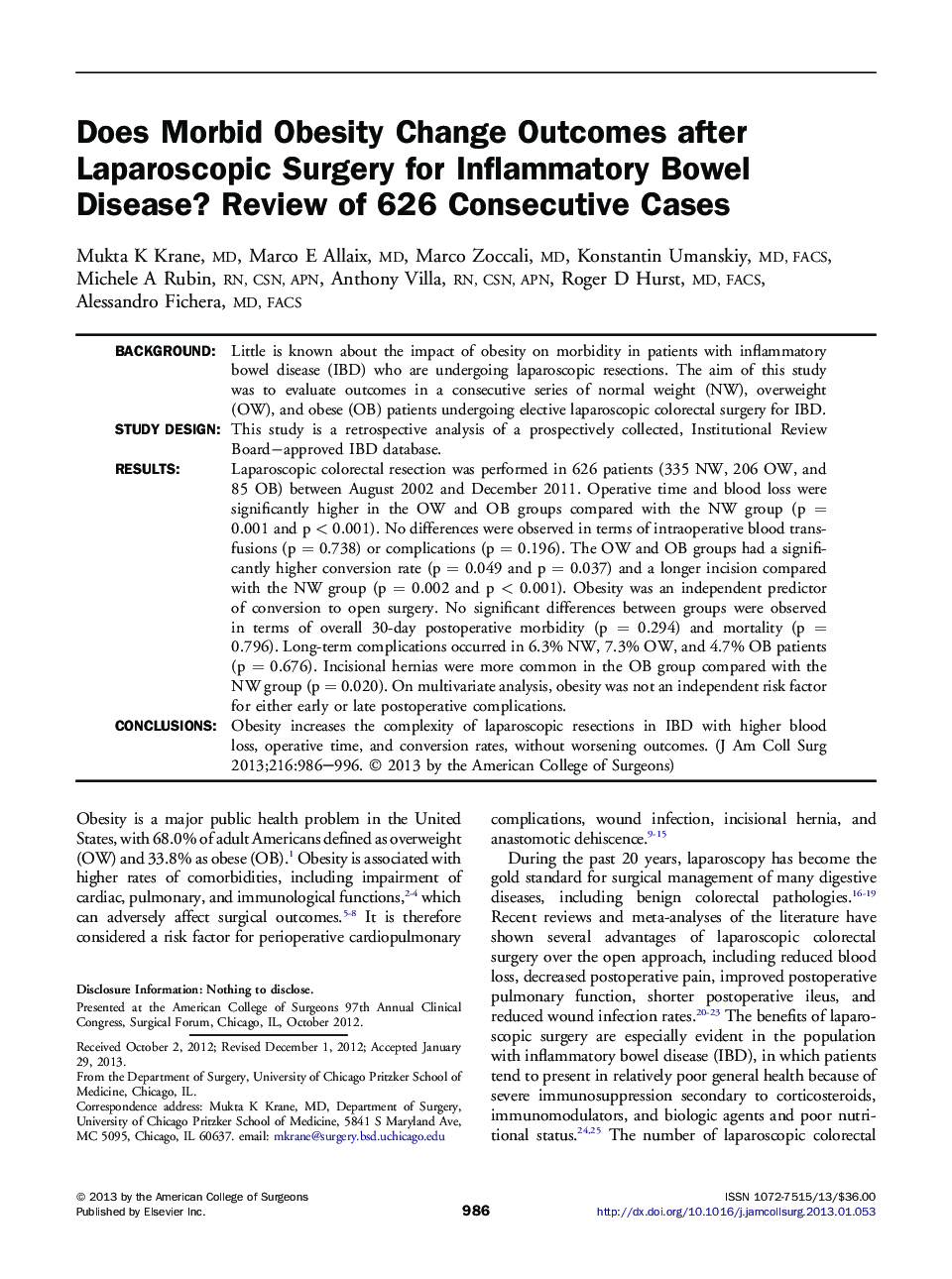| Article ID | Journal | Published Year | Pages | File Type |
|---|---|---|---|---|
| 4292755 | Journal of the American College of Surgeons | 2013 | 11 Pages |
BackgroundLittle is known about the impact of obesity on morbidity in patients with inflammatory bowel disease (IBD) who are undergoing laparoscopic resections. The aim of this study was to evaluate outcomes in a consecutive series of normal weight (NW), overweight (OW), and obese (OB) patients undergoing elective laparoscopic colorectal surgery for IBD.Study DesignThis study is a retrospective analysis of a prospectively collected, Institutional Review Board−approved IBD database.ResultsLaparoscopic colorectal resection was performed in 626 patients (335 NW, 206 OW, and 85 OB) between August 2002 and December 2011. Operative time and blood loss were significantly higher in the OW and OB groups compared with the NW group (p = 0.001 and p < 0.001). No differences were observed in terms of intraoperative blood transfusions (p = 0.738) or complications (p = 0.196). The OW and OB groups had a significantly higher conversion rate (p = 0.049 and p = 0.037) and a longer incision compared with the NW group (p = 0.002 and p < 0.001). Obesity was an independent predictor of conversion to open surgery. No significant differences between groups were observed in terms of overall 30-day postoperative morbidity (p = 0.294) and mortality (p = 0.796). Long-term complications occurred in 6.3% NW, 7.3% OW, and 4.7% OB patients (p = 0.676). Incisional hernias were more common in the OB group compared with the NW group (p = 0.020). On multivariate analysis, obesity was not an independent risk factor for either early or late postoperative complications.ConclusionsObesity increases the complexity of laparoscopic resections in IBD with higher blood loss, operative time, and conversion rates, without worsening outcomes.
